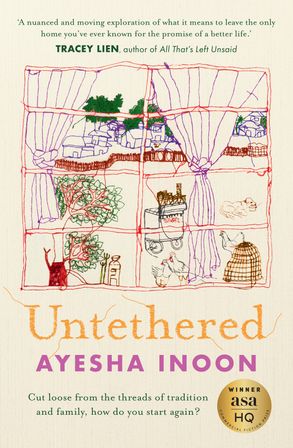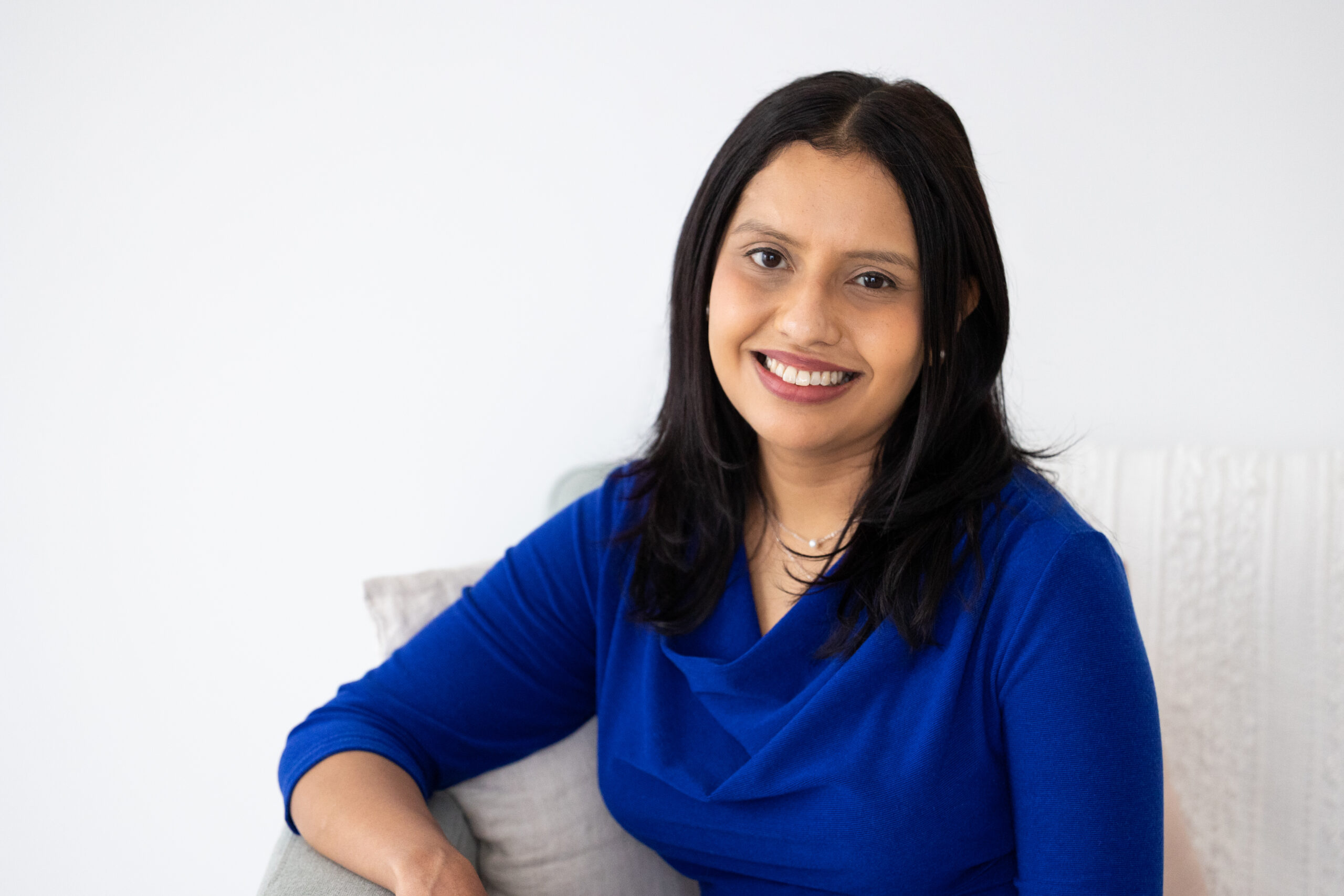In her new novel, Untethered, debut author Ayesha Inoon, who is now based in Canberra, shares with readers an incredibly intimate portrait of a young Sri Lankan woman who immigrates with her husband to Australia. Here, Ayesha speaks with BroadAgenda writer, Jesse Blakers, about the book.
For readers who may not be familiar with the novel, can you give them a sense of what the story is about?
Untethered is a story about the complex experience of immigration but it’s also about a young woman who faces and overcomes great obstacles to find a stronger, freer version of herself. The protagonist Zia has a very sheltered and comfortable life in Sri Lanka, however she is restricted from pursuing her dreams of travel and higher education. She agrees to an arranged marriage as she knows that is what is expected of her.
In Australia she faces homesickness, isolation and poverty, however she also discovers there’s a certain freedom in being in a new country away from the cultural boundaries she’s always known.
The novel follows Zia’s journey of self-discovery, the grief of her losses and the joy of her newfound hopes and dreams.
This story is partially based on your own experiences. What was the process of blending fiction and reality like for you?
It wasn’t so much a blending, as of drawing on my emotional experiences of immigration and navigating life in a new country to create the fictional stories of Zia and Rashid. In some ways it was easy, because I had my knowledge and experience of living in Sri Lanka, of Sri Lankan Muslim culture and life as a new immigrant in Australia.
This sometimes meant it was difficult to have distance from my characters. The initial draft was written in first person. Rewriting in third person helped give me some distance and perspective.
I’d love to know what the pitching and publishing process was like for you as a debut author. Was there anything you didn’t expect?
The pitching process was long, and sometimes disheartening. I tried to be objective about it and not take it personally when I received a rejection. There are so many factors that influence whether a book gets picked up or not, and I realised I could do little to control that beyond making sure my novel was in its best possible shape, and my submissions were well presented.
Needless to say I was thrilled to win the ASA/HQ prize and the journey from there to publication has been a dream. The team at HQ/HarperCollins have been amazingly supportive and I’ve loved working with them to launch my book into the world.
I didn’t expect the enormous amount of work that goes into producing a book – from the editing and proofreading to the cover design and marketing, there is so much that goes on behind the scenes to get books onto shelves!
Zia and Rashid both come from wealthy Sri Lankan families, but Zia, as a woman, does not have the same freedoms as Rashid. We see gendered expectations impact their relationship. Why was it important for you to explore this dynamic?
I wanted to explore how gendered expectations can limit individual freedom of choice and the ability to be true to yourself.
Zia is expected to be submissive, to accept the choices of her parents in terms of what would be best for her life and to then be a ‘good wife’ to Rashid by supporting his choices. Rashid is expected to be the breadwinner and to know what is best for both himself and Zia.
We see both of them rebel against these expectations at various stages of the novel – Zia in wanting to study or work and Rashid in struggling with the fact that all the responsibility for their lives lie on him. And yet they are so confined by societal rules that they are unable to voice their true desires to each other or see how things could be different. I wanted to portray how difficult it can be to step away from such expectations and the strength it would take for someone like Zia to break free of them to follow her own path.

Cover of “Untethered.”
Zia experiences many difficulties moving from Sri Lanka to Australia, but her female friendships and her relationship with her faith are huge pillars of support. What did it mean to you to include these relationships?
We all need the love and support of good friends to make it through difficult times, and I wanted Zia to have these relationships as she navigated life as a new wife and mother in Sri Lanka and then as an immigrant in Australia. In Sri Lanka, these friends are girls she grew up with and they find comfort in their shared experiences.
Her friendship with Jenny in Australia is especially poignant because although they have hardly anything in common, they enjoy each other’s company and build a strong friendship which becomes one of Zia’s foundations in Australia. Zia’s faith also evolves as she goes through her journey yet remains a constant source of comfort and strength.
Although Zia puts some of her dreams aside to be a wife and mother, she never sees motherhood as a substitute. Was it difficult to strike that balance with Zia’s character?
It was challenging, because Zia, like many women, wanted very much to be a mother. I think there’s generations of women who were taught that this was their primary role in life and that all other ambitions were secondary, if at all. For Zia, this conditioning meant that she felt she couldn’t have more than one purpose.
Still, as you say, she never sees motherhood as a substitute because although it fulfils that desire, there are other deep needs which remain unmet, and she is left brimming with all this potential that she’s not able to express or pursue.
Zia spends much of the story ‘searching’; for approval from her family, for a sense of purpose and freedom. What is something you hope readers take away from Zia’s journey?
I would love for readers to see that Zia’s sense of purpose and her freedom, eventually came from within herself. At the beginning of the novel, she complies with all that is expected of her, believing the love and approval of her family and Rashid to be her reward, despite her secret yearnings for more out of life.
As the story progresses, Zia finds the courage to break free of her constraints and reach for independence. Although that comes at the cost of irrevocable losses, that is part of her journey, building her resilience and giving her a greater capacity to hold both the sorrows and joys of her new life.
Jesse Blakers is a Global Studies graduate who studied at the University of Canberra. She's also a budding academic, with a current focus on queer representation in media. Jesse recently interned at BroadAgenda.





